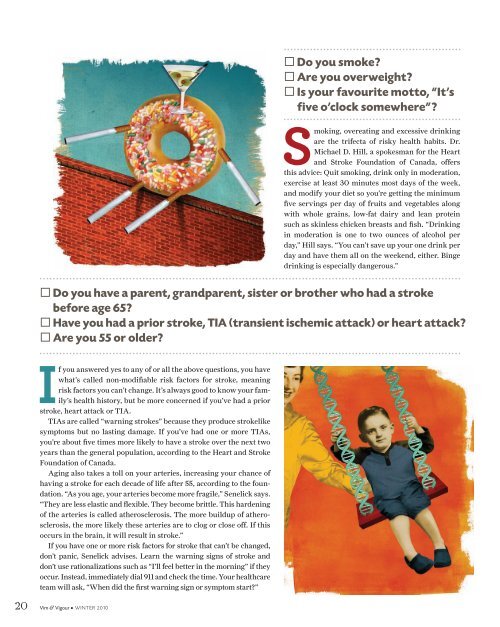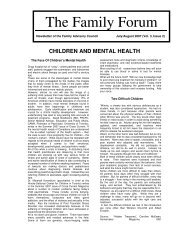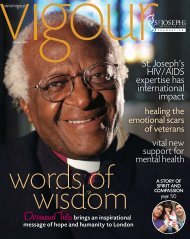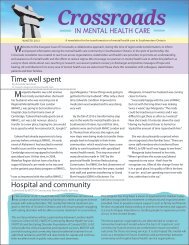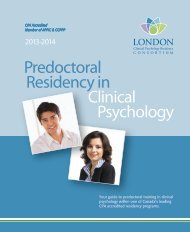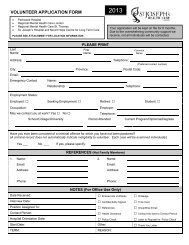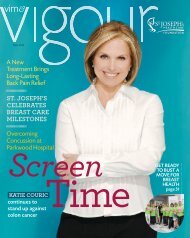Winter 2010 - St. Joseph's Health Care London
Winter 2010 - St. Joseph's Health Care London
Winter 2010 - St. Joseph's Health Care London
Create successful ePaper yourself
Turn your PDF publications into a flip-book with our unique Google optimized e-Paper software.
20<br />
If you answered yes to any of or all the above questions, you have<br />
what’s called non-modifi able risk factors for stroke, meaning<br />
risk factors you can’t change. It’s always good to know your family’s<br />
health history, but be more concerned if you’ve had a prior<br />
stroke, heart attack or TIA.<br />
TIAs are called “warning strokes” because they produce strokelike<br />
symptoms but no lasting damage. If you’ve had one or more TIAs,<br />
you’re about fi ve times more likely to have a stroke over the next two<br />
years than the general population, according to the Heart and <strong>St</strong>roke<br />
Foundation of Canada.<br />
Aging also takes a toll on your arteries, increasing your chance of<br />
having a stroke for each decade of life after 55, according to the foundation.<br />
“As you age, your arteries become more fragile,” Senelick says.<br />
“They are less elastic and fl exible. They become brittle. This hardening<br />
of the arteries is called atherosclerosis. The more buildup of atherosclerosis,<br />
the more likely these arteries are to clog or close off. If this<br />
occurs in the brain, it will result in stroke.”<br />
If you have one or more risk factors for stroke that can’t be changed,<br />
don’t panic, Senelick advises. Learn the warning signs of stroke and<br />
don’t use rationalizations such as “I’ll feel better in the morning” if they<br />
occur. Instead, immediately dial 911 and check the time. Your healthcare<br />
team will ask, “When did the fi rst warning sign or symptom start?”<br />
� Do you smoke?<br />
� Are you overweight?<br />
� Is your favourite motto, “It’s<br />
five o’clock somewhere”?<br />
Smoking, overeating and excessive drinking<br />
are the trifecta of risky health habits. Dr.<br />
Michael D. Hill, a spokesman for the Heart<br />
and <strong>St</strong>roke Foundation of Canada, offers<br />
this advice: Quit smoking, drink only in moderation,<br />
exercise at least 30 minutes most days of the week,<br />
and modify your diet so you’re getting the minimum<br />
fi ve servings per day of fruits and vegetables along<br />
with whole grains, low-fat dairy and lean protein<br />
such as skinless chicken breasts and fi sh. “Drinking<br />
in moderation is one to two ounces of alcohol per<br />
day,” Hill says. “You can’t save up your one drink per<br />
day and have them all on the weekend, either. Binge<br />
drinking is especially dangerous.”<br />
� Do you have a parent, grandparent, sister or brother who had a stroke<br />
before age 65?<br />
� Have you had a prior stroke, TIA (transient ischemic attack) or heart attack?<br />
� Are you 55 or older?<br />
Vim & Vigour · WINTER <strong>2010</strong>


